1537 Thomas FitzGerald, known as Silken Thomas, was executed on this day in London in 1537. His father was the 9th Earl of Kildare and ruled large territories in Ireland under the kingdom of Henry VIII.
When his father was summoned to London, he left Silken Thomas in charge of his empire. A rumour travelled back to Ireland that Thomas’s father had been executed. Silken Thomas gathered an army of 140 horsemen and denounced his allegiance to King Henry VIII and attacked Dublin Castle.
He assumed his cause would gather great support in Ireland but struggled to gain reinforcements for his army. His stronghold in County Kildare was taken. Lord Leonard Grey promised him his safety if he submit to the mercy of the king.
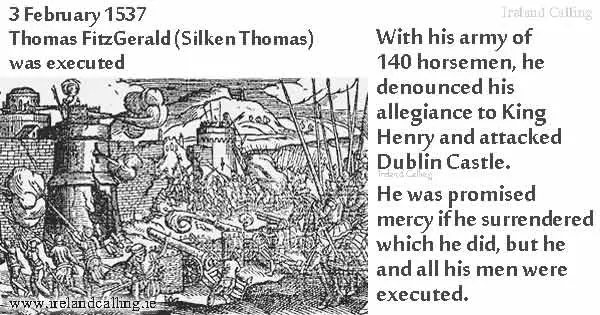
However, after his surrender he was sent to the Towers of London and executed along with his uncles and the remainder of his men. The execution of Silken Thomas was the end of the Fitzgerald’s reign as a major family in Ireland.
Click here to read more about the history of the name Fitzgerald
Click here to read about the history of different Irish names
Click here to read more about Irish history
* * *
1729 The foundation stone for the new Irish Houses of Parliament in College Green was laid by Thomas Wyndham, 1st Baron Wyndham, the Lord Chancellor of Ireland.
The architect for the building was Edward Lovett Pearce, who was also a member of parliament.
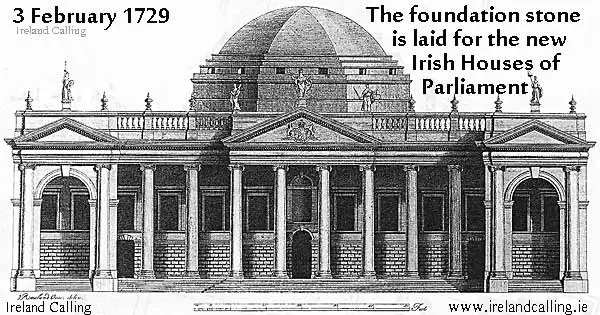
* * *
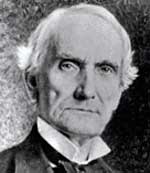
1813 Thomas Mellon was born in County Tyrone, Northern Ireland on this day in 1813. He moved to America as a child and was inspired when he read The Autobiography of Benjamin Franklin. He vowed to make a success of his life and achieve great wealth.
Mellon studied in Pittsburgh and had a successful career in law. He shrewdly invested much of his salary in property and decided to leave his post and set up his own bank. Melon accrued more and more properties and was well placed to take advantage of the boom in economy in 1870s.
His business grew into the biggest bank in the United States, outside of New York. Mellon retired in 1885 and handed his empire over to his son, Andrew.
* * *
1881 Michael Davitt (Irish Land League organizer) was arrested again for accusing chief secretary of Ireland W. E. Forster of “infamous lying”. He was sent to Portland jail. This followed the passing of the Irish Coercion Bill which allowed the British government in Ireland to arrest without trial persons ‘reasonably suspected’ of crime and conspiracy.
Charles Stewart Parnell and many other politicians, and hundreds of others were sent to jail under this new Act.
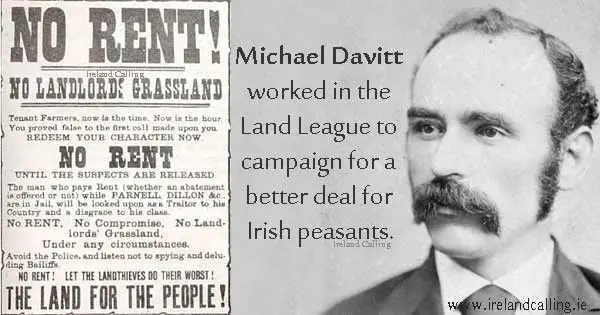
Read Michael Davitt’s story and his role in the Land League
* * *
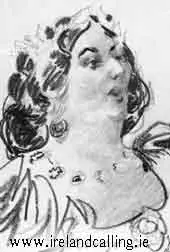
1896 Jane Francesca Agnes Wilde died. She was a poet, and wrote under the pseudonym Speranza. ‘Speranza’ means ‘’Hope’ in Italian. Wilde was a lover of Irish myths and folklore, and often referenced them in her poems.
She was also a supporter of the Irish nationalist movement that took place throughout the 19th century, and often wrote pro-Irish and anti-British articles for The Nation newspaper. Wilde was married to surgeon Sir William Wilde and they had three children together, one of whom was Oscar Wilde.
Click here to read about more Irish writers
Click here to read some of the best Oscar Wilde quotes
Click here to read some traditional Irish fairy stories and folk tales
Her most famous poem is, perhaps, The Famine Year (also known as The Stricken Land). Click to read the full poem
* * *
1922 John Butler Yeats died. He was an Irish artist and the father of William Butler Yeats and Jack Butler Yeats. He painted young WB Yeats hangs in the Yeats museum in the National Gallery of Ireland.
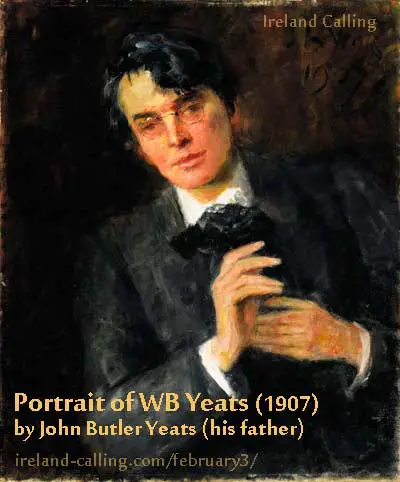
* * *
1927 Val Doonican was born on this day in Waterford. He was a hugely successful singer and entertainer from the 1960s right up until his 2009 when he finally hung up his microphone to enjoy his retirement on the golf courses of Spain.
Doonican was a big star in Ireland and Britain in the 1960s, when he had five successive top ten albums, and also had his own BBC entertainment show.
Here’s Val Doonican singing the very popular O’Rafferty’s Motor Car.
More from Val Doonican here.
* * *
1998 On this day in 1998, Northern Ireland politician, Billy Hutchinson accused members of the Loyalist Volunteer Force of being nothing more than “a bunch of thugs, drug dealers and police informers”, despite having received death threats from the group.
* * *
2001 Ireland’s celebrities were named amongst the highest earners in the UK on this day in 2001. Sports stars Roy Keane and Eddie Irvine and musicians U2, The Corrs and Enya all made the rich list, along with James Bond actor Pierce Brosnan and fiction writer Maeve Binchy. Click on the links to read more about their careers.
* * *

2006 Adam Clayton picked up three prizes on behalf of his band, U2 at the Meteor Ireland Music Awards in Dublin on this day in 2006. The band have won countless awards throughout their glittering career, and have used their profile to raise money and awareness for several good causes.
Click here to read about Adam Clayton and the ‘Funky Shoe’ mental health campaign

